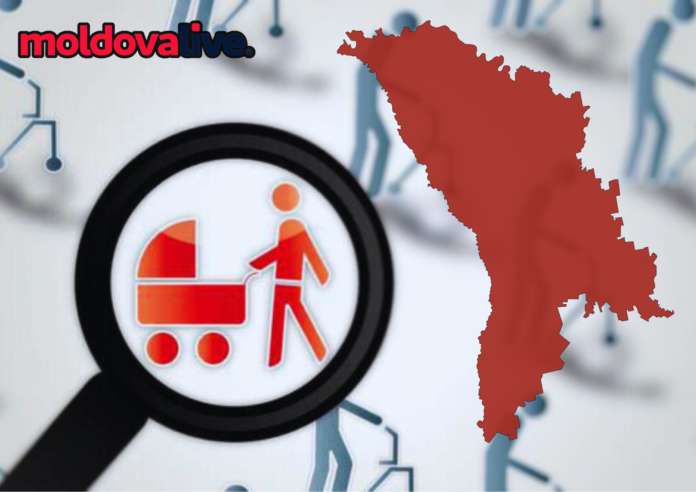In the Republic of Moldova, the birth rate is steadily decreasing, prompting experts to declare a “profound demographic crisis.”
Over the past eight years alone, the number of newborns has plummeted by nearly 34%, from approximately 41,000 in 2014 to 27,000 in 2022, as reported by the National Bureau of Statistics, cited by Știri.md via Europa Liberă.
In 2022, the fewest children were born in the southern part of the country (3,648), while the highest number was recorded in the central region (8,389). Chisinau, the capital, and northern Moldova each saw the birth of around 7,000 children. According to the National Bureau of Statistics, rural areas witnessed nearly 5,000 more births than urban areas (15,800 compared to 11,000). In Burlănești commune, with a population of over 1,700, only five children were born last year, a stark contrast to the annual 100 births recorded before 2000.
“Out of five children born in 2023, two have left with their parents abroad. We’ve lost them. Who knows how long the remaining three will stay. Currently, we have 46 children in kindergarten, organized into three groups. The nursery closed in 2022 due to a lack of children. We might not open the first grade in the fall. In the village, homes are empty; everyone is abroad,” revealed Sergiu Balamutovschi, the mayor of Burlănești, to Europa Liberă.
Experts attribute the declining birth rate to three decades of continuous decrease, with migration being the primary factor. Valeriu Sainsus, a demographer, explained.
“From 180,000 births in 1970, we’ve reached 27,000 in 2022. What we are facing now is a profound demographic crisis, with excessive migration of the reproductive-age population remaining the primary factor. The second factor comes from the changing behavior of the younger generations, with delayed marriages resulting in minimal childbearing, often just one child.”
In response, the government is trying to incentivize families to have more children. This year, the one-time childbirth allowance was doubled to 20,000 lei, and parents now have multiple options for childcare leave allowances. However, Sainsus emphasized that these measures need to address the total expenses for child and maternal care to be effective in promoting demographic growth.
According to the demographer, if Moldova continues to experience negative natural population growth for nearly 25 years, with mortality surpassing birth rates, the country should brace itself for a “demographic devastation.”


